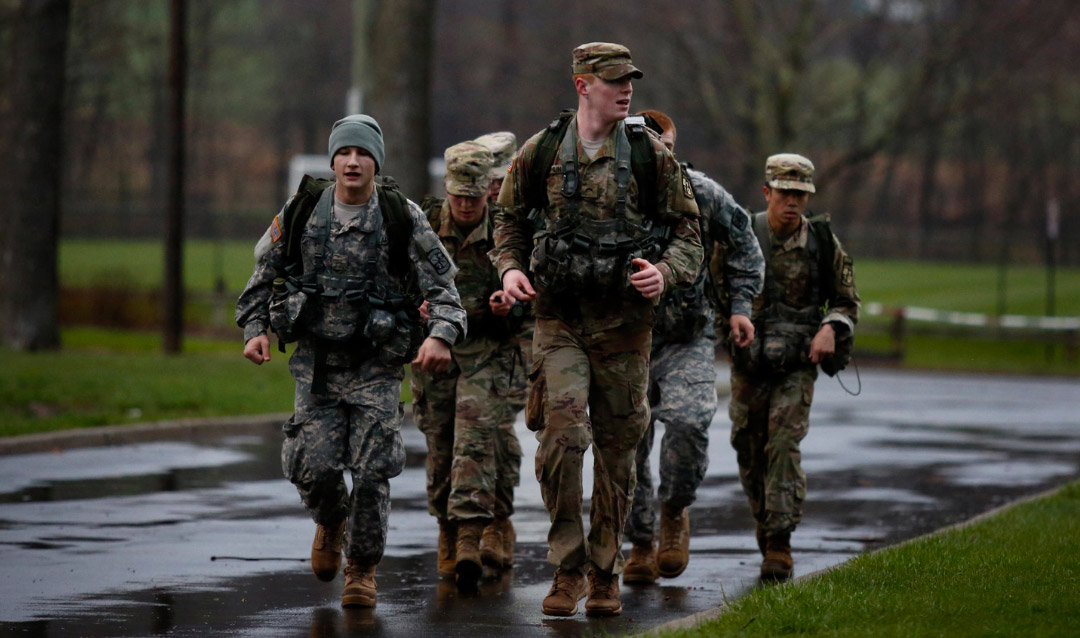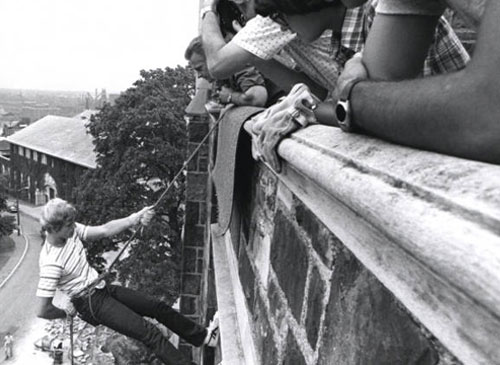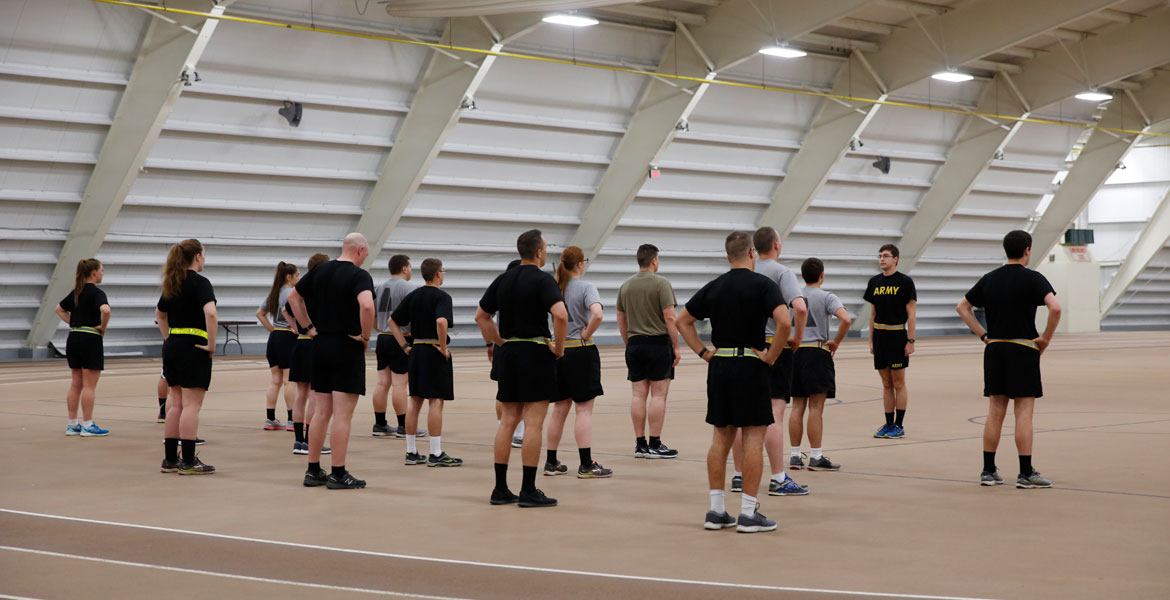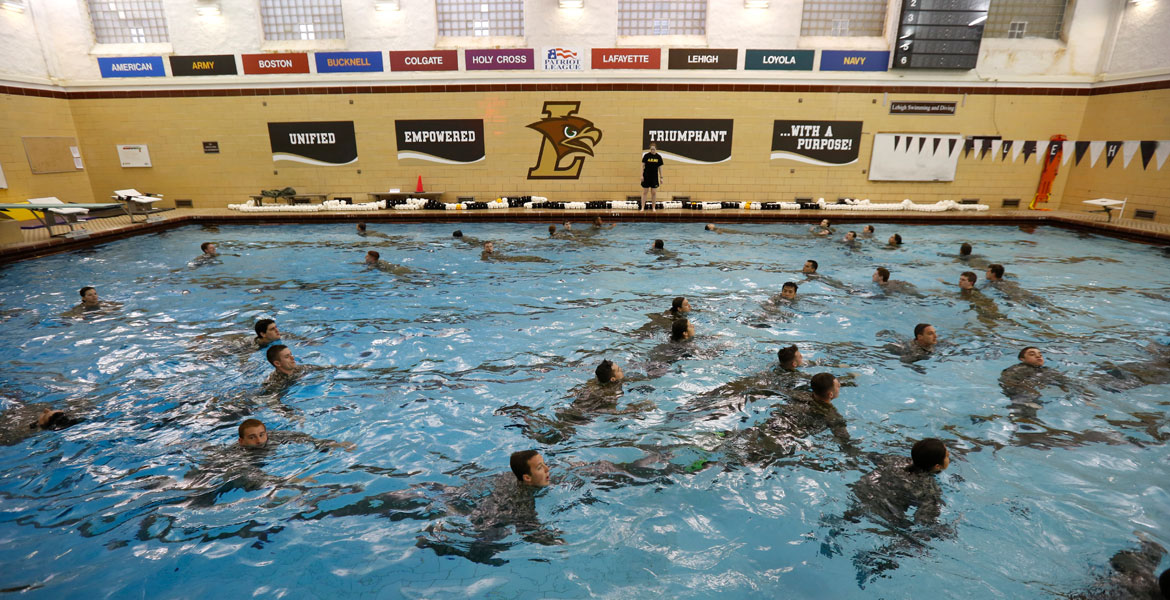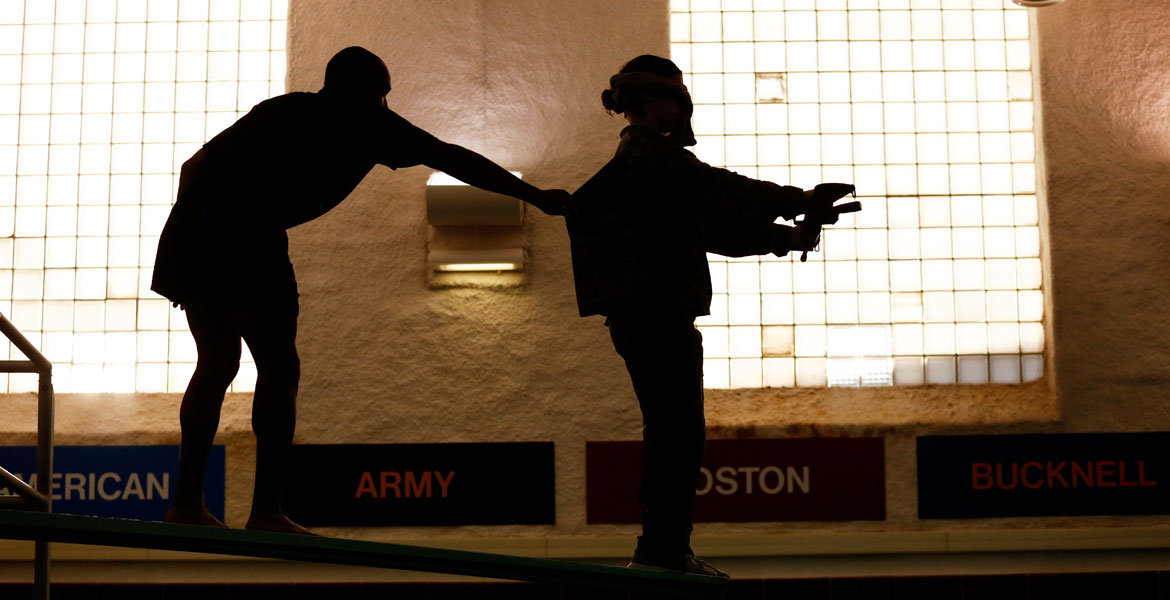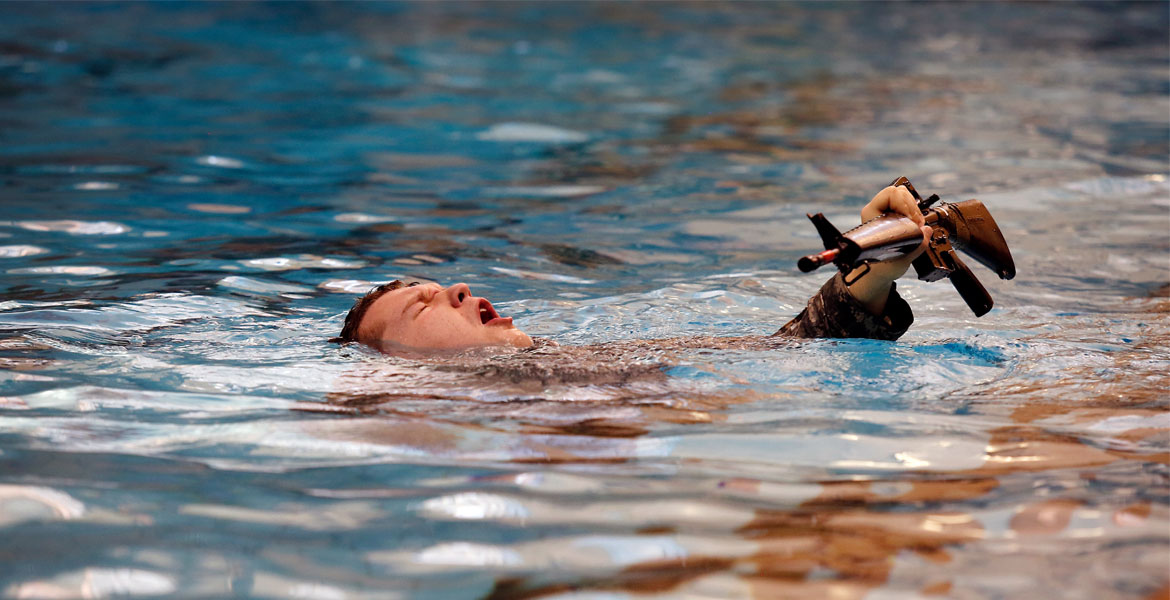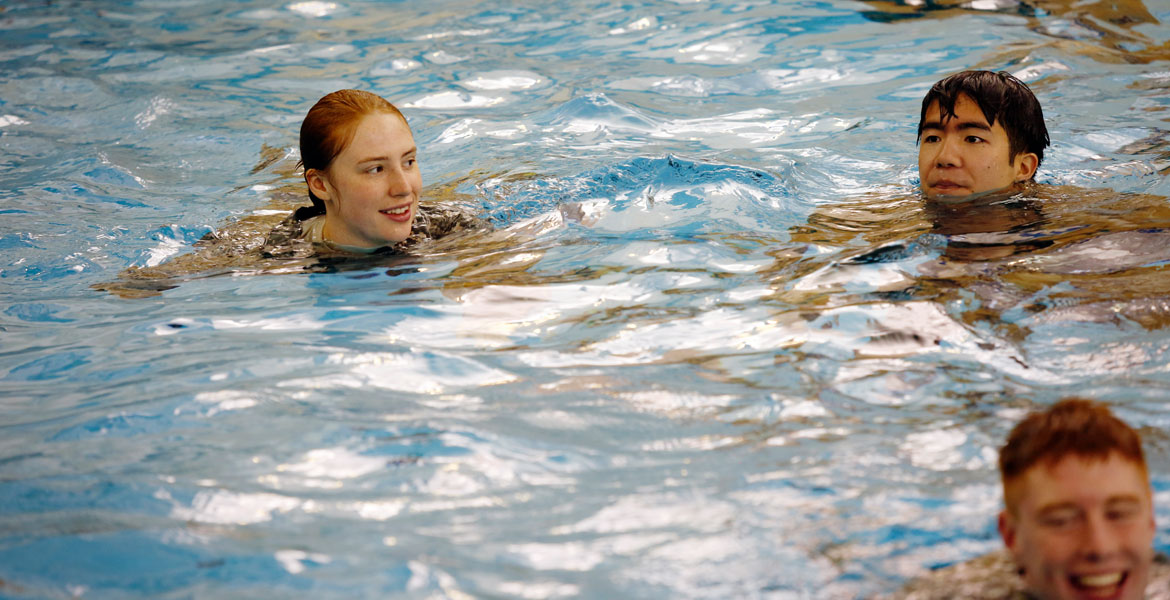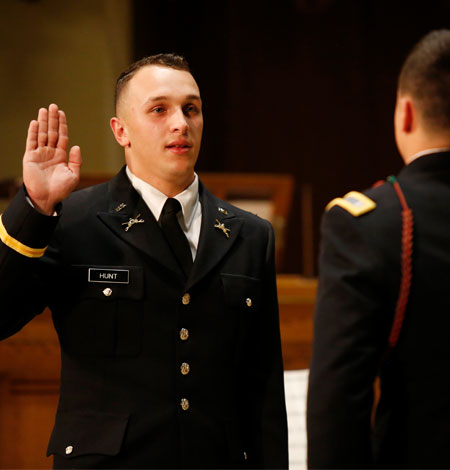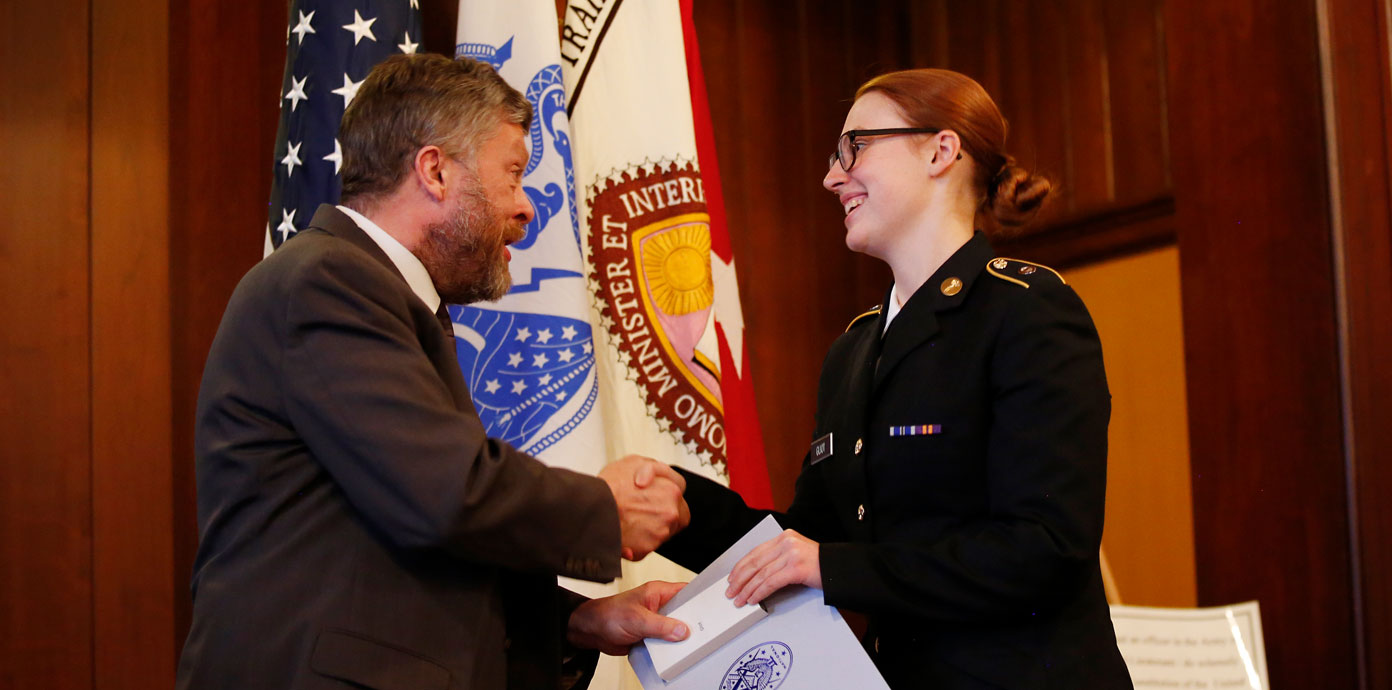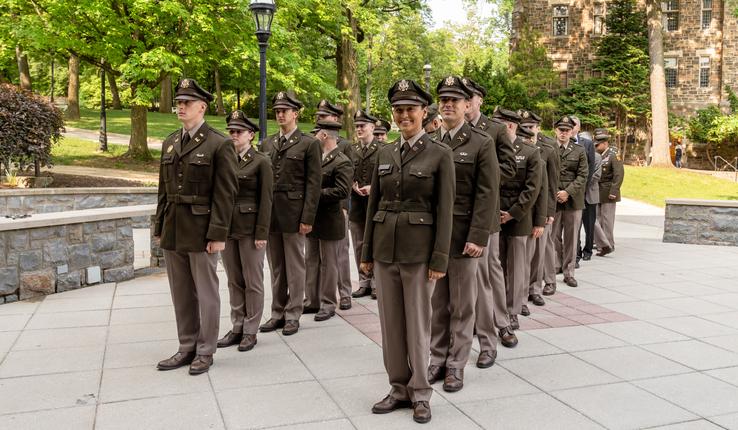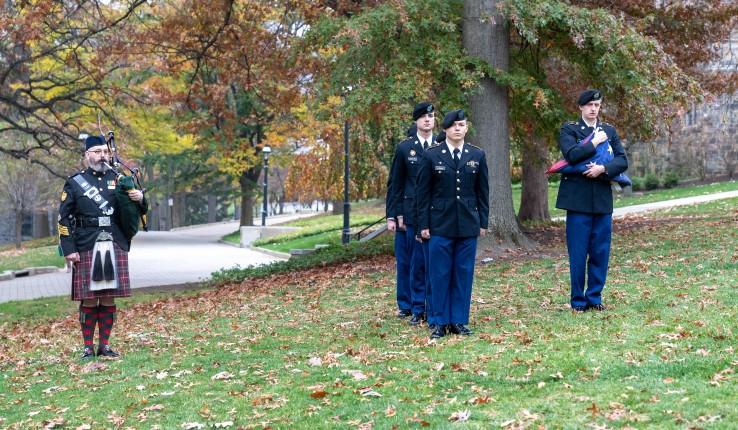Thoughts of Lehigh University might conjure up many images: towering Gothic architecture, rigorous academics, the Lehigh-Lafayette Rivalry, gregarious squirrels, seemingly innumerable staircases. But the ROTC (Reserve Officer Training Corps) should also come to mind, says Major Scott Matkosky, assistant professor of military science.
“Lehigh University is one of the original three ROTC programs in the country,” Matkosky says. “So when you think Lehigh, you should think ROTC because it’s been here for a long time.”
In fact, 2019 marks the 100-year anniversary of the establishment of ROTC at Lehigh.
“At the end of the day, it’s about leader development,” says Major John Abella, professor of military science. “[We teach cadets] to be good leaders, not just for the Army, but for the Nation.”
Well before the National Defense Act of 1916 established ROTC, Lehigh’s fifth president, Henry Sturgis Drinker, arranged in 1913 to send students to the first Summer Military Training Camp for Civilians in Gettysburg, Pa. Drinker, a graduate of the Class of 1871 and a strong supporter of military education, served as president of the National Reserve Corps from 1913 to 1916 and as chairman of the board of directors of the Military Training Camps Association from 1916 to 1919. In September 1919, he established an ROTC infantry unit at Lehigh.
Drinker’s daughter, historical writer Catherine Drinker Bowen, described Lehigh’s establishment of ROTC in her 1924 book, History of Lehigh University:
“Conducted on a voluntary basis during the first year, the [ROTC] unit had a membership of more than three hundred students; and the work ... was highly successful. Let us add that there is nothing more dreary and drab than a voluntary college ROTC which is not successful.”
Far from “dreary and drab,” Lehigh’s ROTC program today continues to produce effective leaders for the Army and the civilian world.
Says Lieutenant Colonel Michael Farmer ’02, a former professor of military science at Lehigh who also participated in ROTC as a Lehigh undergraduate: “The Army is looking for leaders who can solve complex problems in difficult conditions. The Lehigh student is a great person [for that].”


